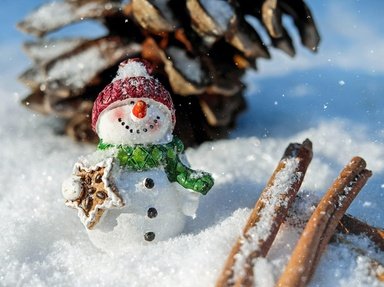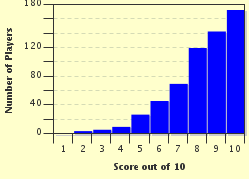Quiz Answer Key and Fun Facts
1. On which date do Roman Catholic and most Protestant churches celebrate Christmas Day?
2. Christmas Day became a federal holiday in the US as soon as the Constitution was adopted.
3. In the Anglican, Catholic and Lutheran churches, what is the name of the season that begins four Sundays before Christmas Day and ends on Christmas Eve?
4. Often displayed in large outdoor groupings as well as smaller indoor versions, the manger scenes commemorating the birth of Jesus are called what?
5. Most of us have heard the song, but according to the Anglican and Catholic calendars, when are the twelve days of Christmas?
6. The story of the birth of Jesus is told in which book(s) of the Bible?
7. January 6, sometimes called "Little Christmas" is celebrated the day after Twelfth Night and is known by what name?
8. Who were the Magi?
9. The day after Christmas is a holiday in some countries and is known by what name?
10. The "Christmas truce", a brief period when an unofficial cease fire occurred between opposing forces, took place during what war?
Source: Author
Coonielady
This quiz was reviewed by FunTrivia editor
Bruyere before going online.
Any errors found in FunTrivia content are routinely corrected through our feedback system.

